Celeb Culture Is Mutating and Coming for Us All
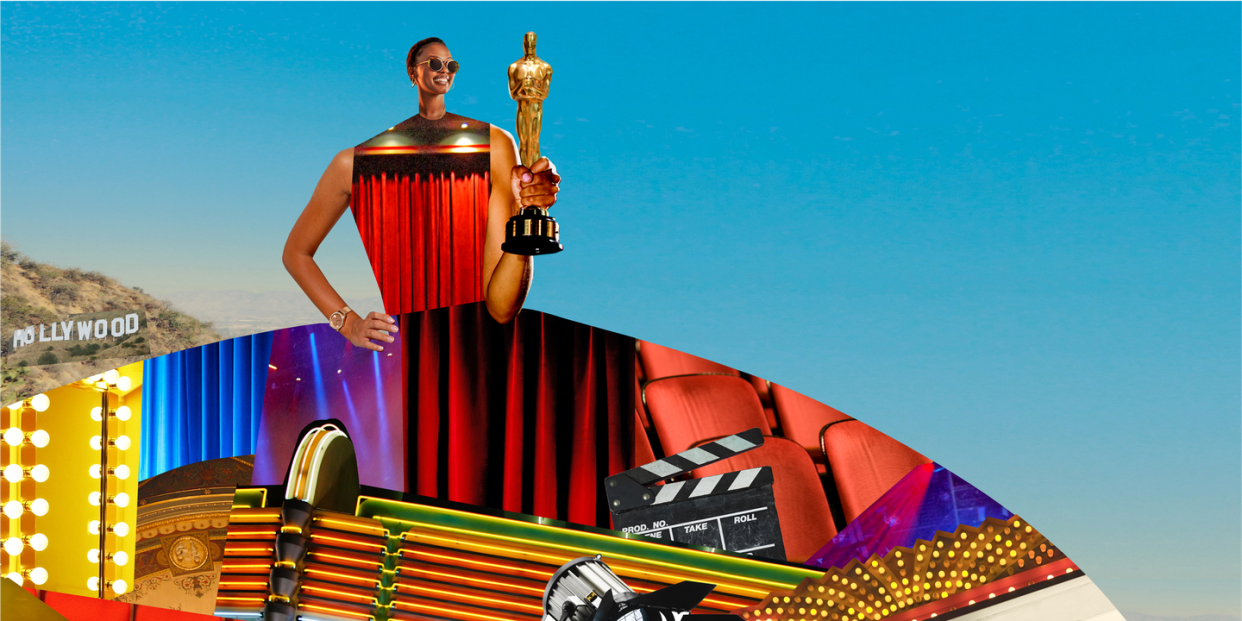
"Hearst Magazines and Yahoo may earn commission or revenue on some items through the links below."
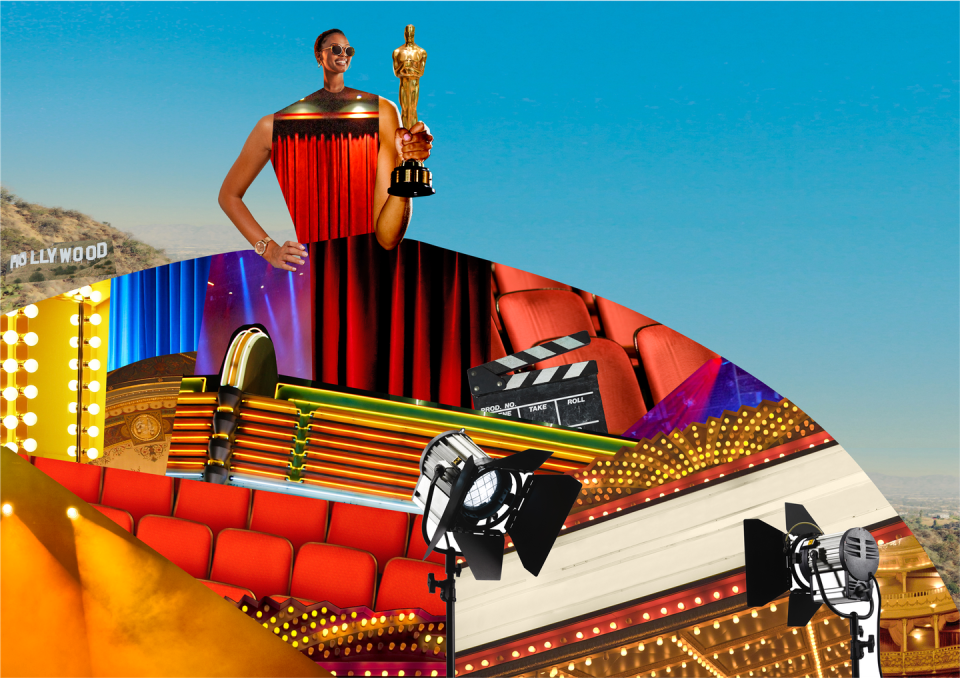
Buckle up; we’re all driving this thing now. We’ve actually been at the wheel of the fame wagon ever since digital media turned “stardom” into a communal calculus of shares and streams, retweets and traffic spikes. Each smartphone glows with catalytic potential, a tiny spotlight. We can make anyone famous, including ourselves. This makes us all stakeholders in the future of celebrity. What will we make of it? Here, 16 experts pile into Cosmo’s stretch-limo time machine for a tour of tomorrow’s famescape, which is gonna look a lot like…
More Monetary Control
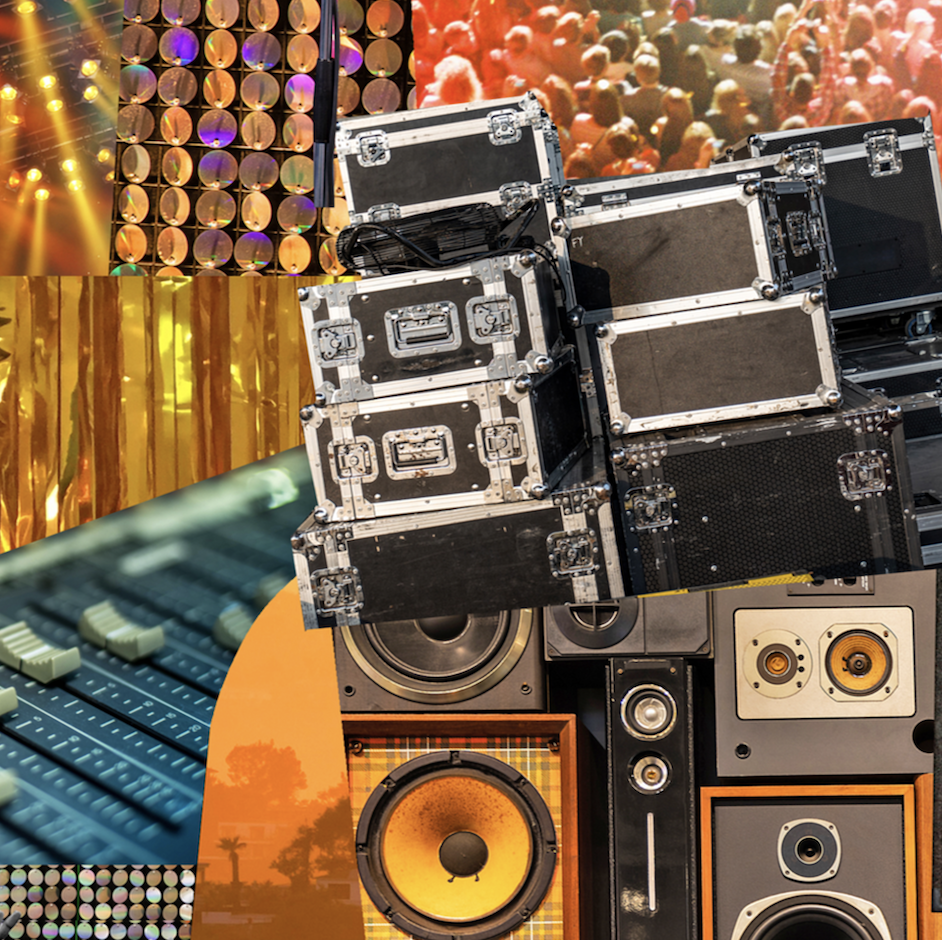
“We often think of fame and wealth as going hand in hand, but they don’t always. A lot of times, Black and brown creators get famous but then see their work monetized by white creators. Like Jalaiah Harmon, the teen who created the Renegade dance, or Kayla Newman, aka Peaches Monroee, who came up with the phrase ‘on fleek.’ So when we think about fame and influence, we also have to think about who’s getting paid.
The next generation of creators is very aware of this inequity. Some are already using social media to hold people and platforms accountable for appropriation. Last year, a group of Black creators promoted the #BlackTikTokStrike hashtag, refusing to add their work to a dance challenge until TikTok addressed its apparent preferential treatment of white users. Power is being able to make money off your creative work and being the person who has the right of control over it.” —Alice Marwick, PHD, author of Status Update: Celebrity, Publicity, and Branding in the Social Media Age
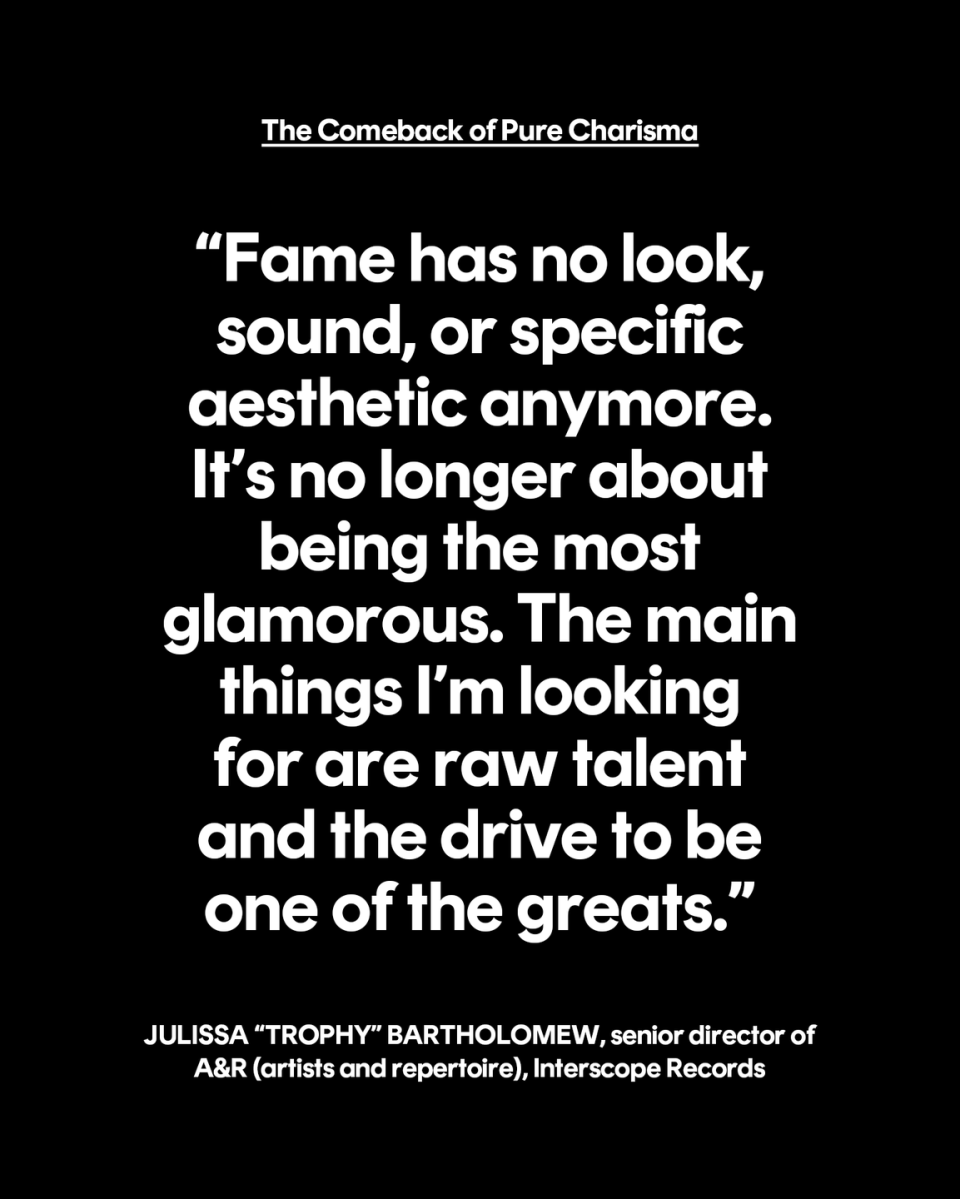
Hashtag Talent Mining
“With creators around the world putting up projects themselves, most mornings, I’m up early on Instagram doing what I call the hashtag method: scrolling through hashtags like #NYComedian and #NYSketchComedy to find people who aren’t on my radar. We’re going to see a major shift in power that will have more people building their own table for storytelling. We need to stay open to that to find the talent.” —Erica A. Hart, CSA, casting director, That Damn Michael Che
Algorithmic Shock
“I think a common assumption is, Oh, people just want to be famous because they’re narcissists. No, many people are pushed into putting themselves out there and commoditizing themselves because they know that, in America, a little bit of fame can be helpful. It’s about opportunity.

Fame is driven by technology now. The more we move to algorithmic feeds, the more algorithms are going to be determining who’s famous. And fame has always come with pitfalls, like online hate, loss of privacy, loss of autonomy. This is something ‘real’ celebrities understand— they know they can’t control the narratives about themselves. They have entire teams to deal with that.
Now, though, average people are learning these lessons on their own, and that can be incredibly traumatic. They actually can’t handle it because they aren’t narcissists. With the continued democratization of fame, we’re going to see more people suffering the downsides.” —Taylor Lorenz, technology columnist, Washington Post
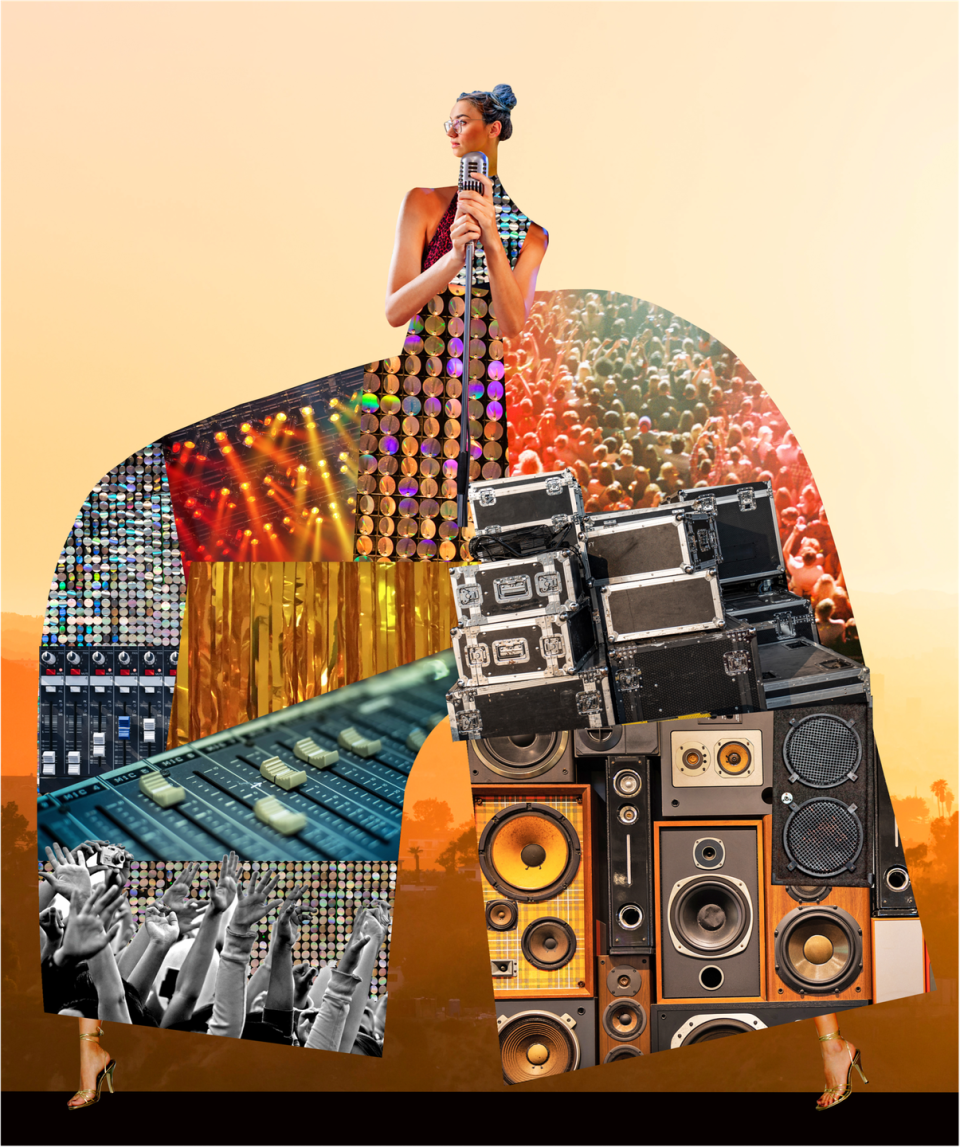
Virtual Mind Melding
“We know from history that major technological invention always affects celebrity. If you had asked someone in 1915, ‘What will fame look like five years from now?’ a good prediction would have been the explosion of silent film.
My prediction now: Keep an eye on virtual reality. We know that people care about feeling close and intimate with celebrities. And with VR, you can go through the portal and inhabit another person’s perspective. It’s a form that nobody’s really figured out yet. Artificial intelligence is another area to watch. The qualities that make people people—the autonomy and unpredictability—that’s the gold standard AI is aiming for. The closer we get to that, the more likely it is that we’re going to have AI celebrities. It’s a little creepy and really exciting.” —Sharon Marcus, PHD, author of The Drama of Celebrity
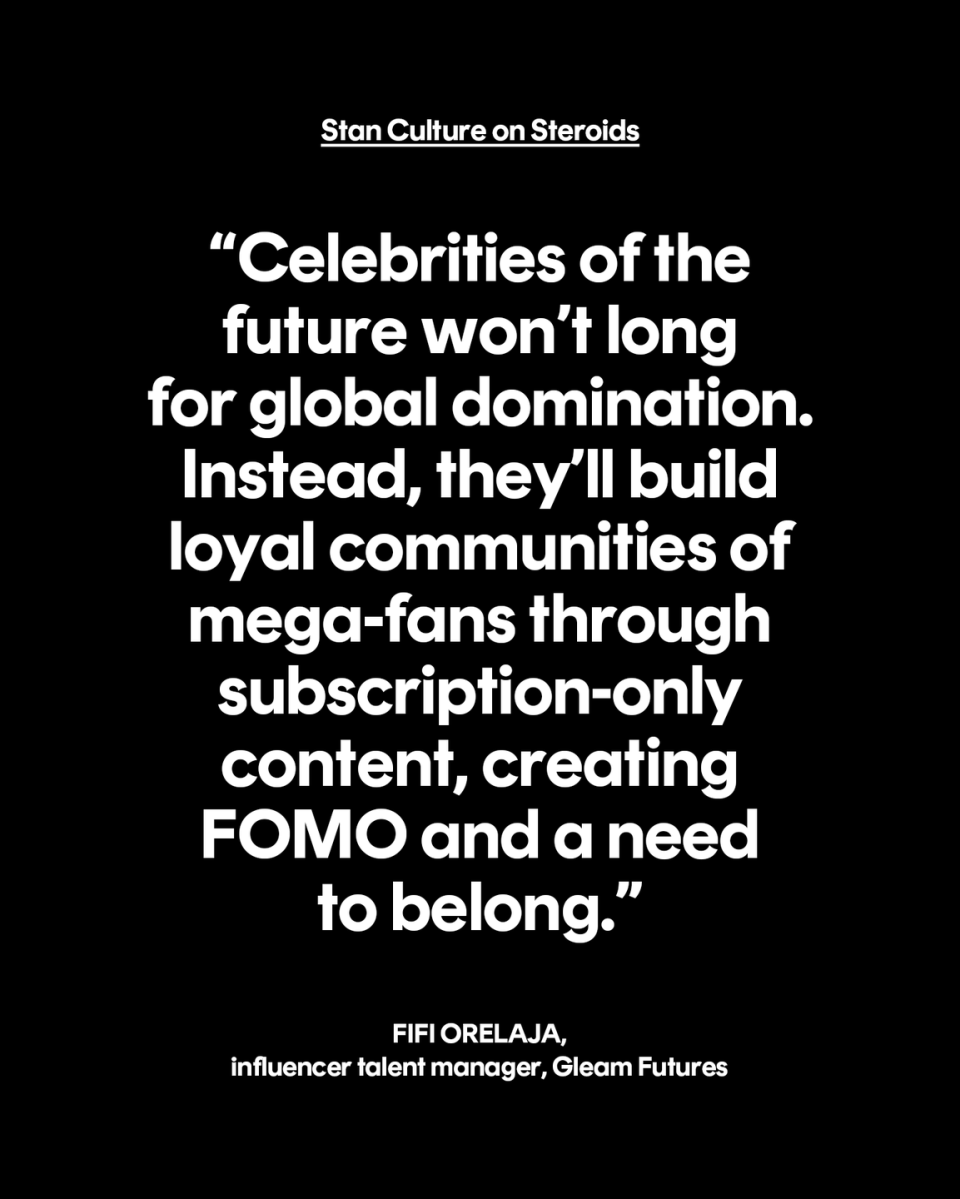
Retirement Planning for Human Memes
“In 2012, Justin Bieber held a promotional contest where he asked fans to record parodies of his song ‘Boyfriend.’ The day after I uploaded my entry—a video made from the perspective of a clingy girlfriend—it started going viral. So did a screenshot of my face, a meme that everyone was calling the Overly Attached Girlfriend. Since I was in on the joke, I had fun riding the initial wave of attention. Very quickly, though, the meme felt out of my control. I’d see it and think, Oh, there’s my meme, rather than, Oh, there’s my face. Some companies even used the image to promote their products without my consent.
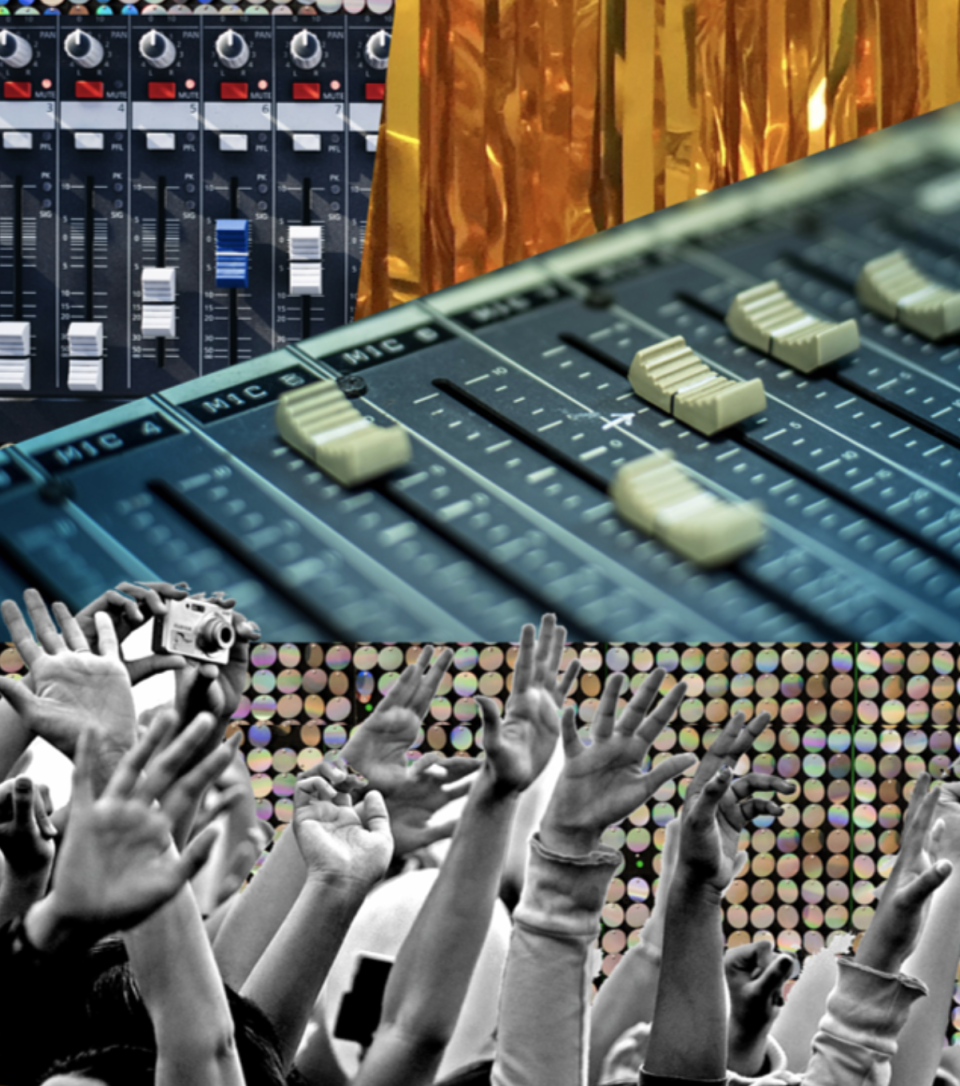
Last year, my friend Kyle—he’s known as the Bad Luck Brian meme—asked me if I had considered making Overly Attached Girlfriend into an NFT [a non-fungible token, a digital asset on the blockchain]. At the time, I had almost no idea what an NFT was. Kyle explained it, then said that he and some other people behind memes—Grumpy Cat, Scumbag Steve—were minting NFTs and making money off of them. With his help and the help of Nyan Cat creator Chris Torres, I minted and sold Overly Attached Girlfriend as an NFT that same week.
The sale [valued at about $400,000] almost felt like a way to finally get some sort of compensation for those early days when my face was everywhere without my permission. It’s incredible that 10 years after my meme went viral, something like selling an NFT is even possible. I feel very fortunate. I was able to get myself out of debt. I’ve been able to focus on my mental health, my future.” —Laina Morris, ex-YouTuber, human NFT
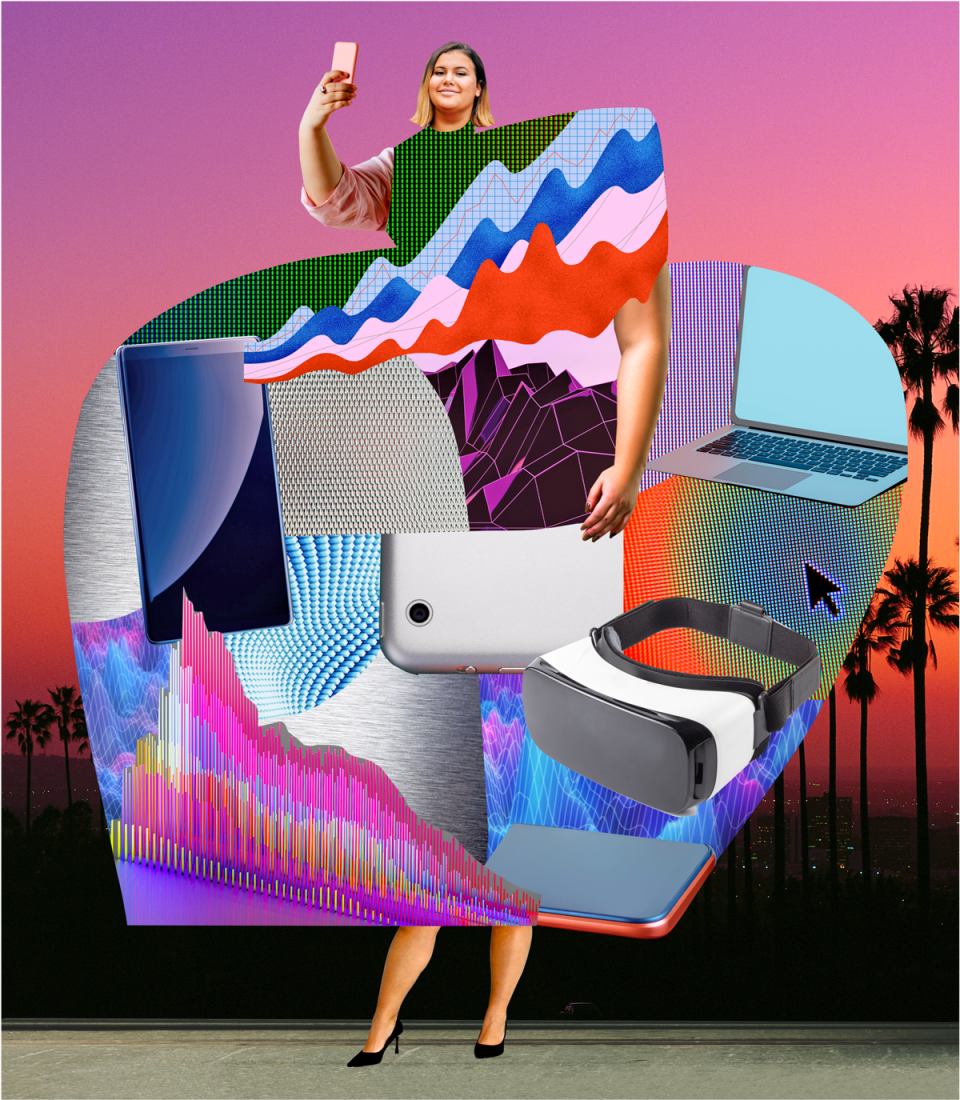
Legitimacy as a Side Effect
Abigail Barlow, 23, and Emily Bear, 20, aka Barlow & Bear, aspiring musicians who wrote an unofficial Bridgerton musical, recorded the process on TikTok, and...won a Grammy for it this year
EB: This shouldn’t have been possible. Our project was completely DIY—no money, no record label, no PR. And yet here we are with a Grammy.
AB: The history of the music industry is that artists basically have to sign their life away and won’t own what they’ve created.
EB: Having the power to post a video and immediately reach 10 million people? It’s pretty incredible. Our project would not have happened the way it did if it didn’t exist on social media. This is the way of the future—the power of the people, which is very powerful.
The Stars You’ll See in 2032
—Crystal Abidin, PHD, digital anthropologist and ethnographer of internet cultures
The Fall of Tokenism
“One of our founding policies in 2015 was that we would not submit actors for casting calls until we ensured the script was an authentic representation of our community. Younger audiences now demand such representation—in gender, sexuality, race, and culture. Entertainment executives know this. They try to keep their finger on the pulse so their companies don’t disappear. With so many highly skilled trans and non-binary actors coming onto the market, excellence is the future.” —Ann Thomas, founder and CEO, Transgender Talent
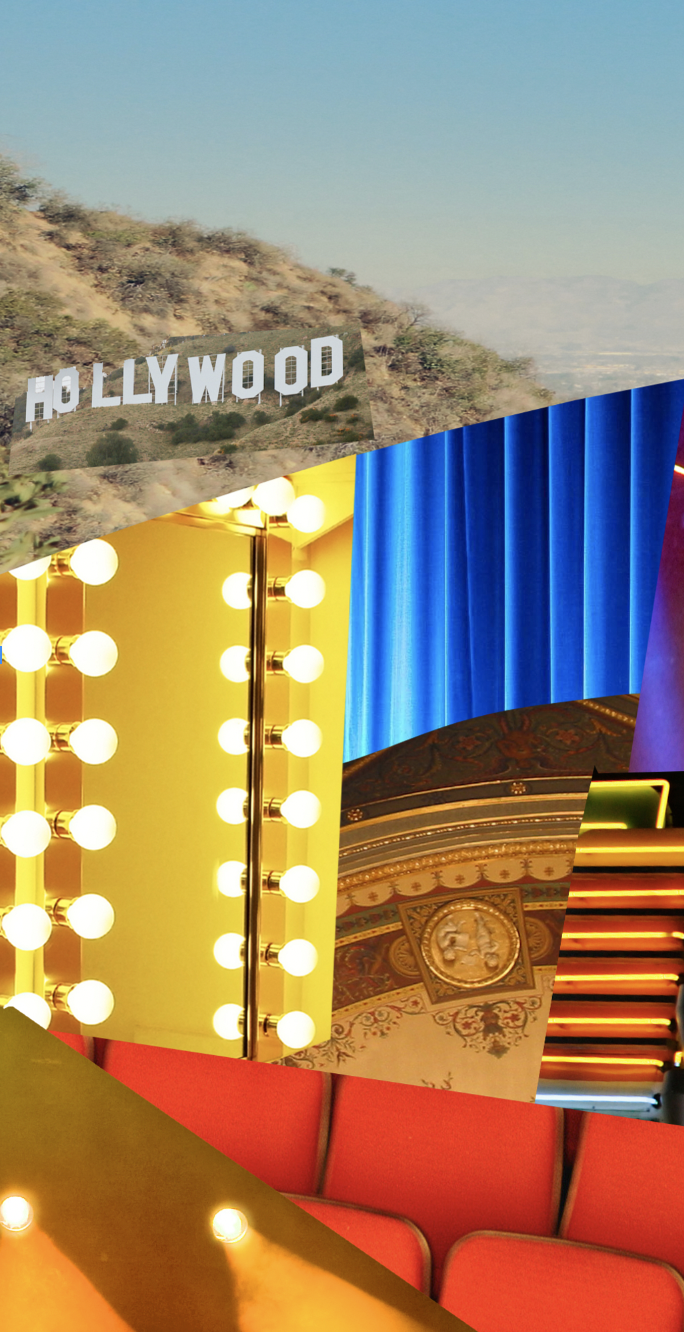
More Black Women Moguls
“A lot of people think of writing, directing, and performing when we talk about diversifying TV and film, but the business side matters too. Decision-makers like agents, lawyers, publicists, managers—do they understand your culture and motivations? Organizations like the National Black Public Relations Society and Women of Color Unite are making headway in diversifying these spaces. Change is slow, but it’s coming.” —Pamela Chinawah, multicultural entertainment publicist
Lingering Hierarchies
Bobby Finger and Lindsey Weber, cohosts of the gossip podcast Who? Weekly
BF: Social media has made it possible for anyone to build a huge audience, but it’s hard to imagine a time when traditional agents, publicists, and so on won’t be required to take someone to the A-list.
LW: Every new platform will have its own set of “famous” people. It’s up to those people to transcend into more traditionally popular formats like movies, music, and TV. Even the world’s most famous TikTok star is simply a TikTok star.
BF: And I simply cannot think about the metaverse.
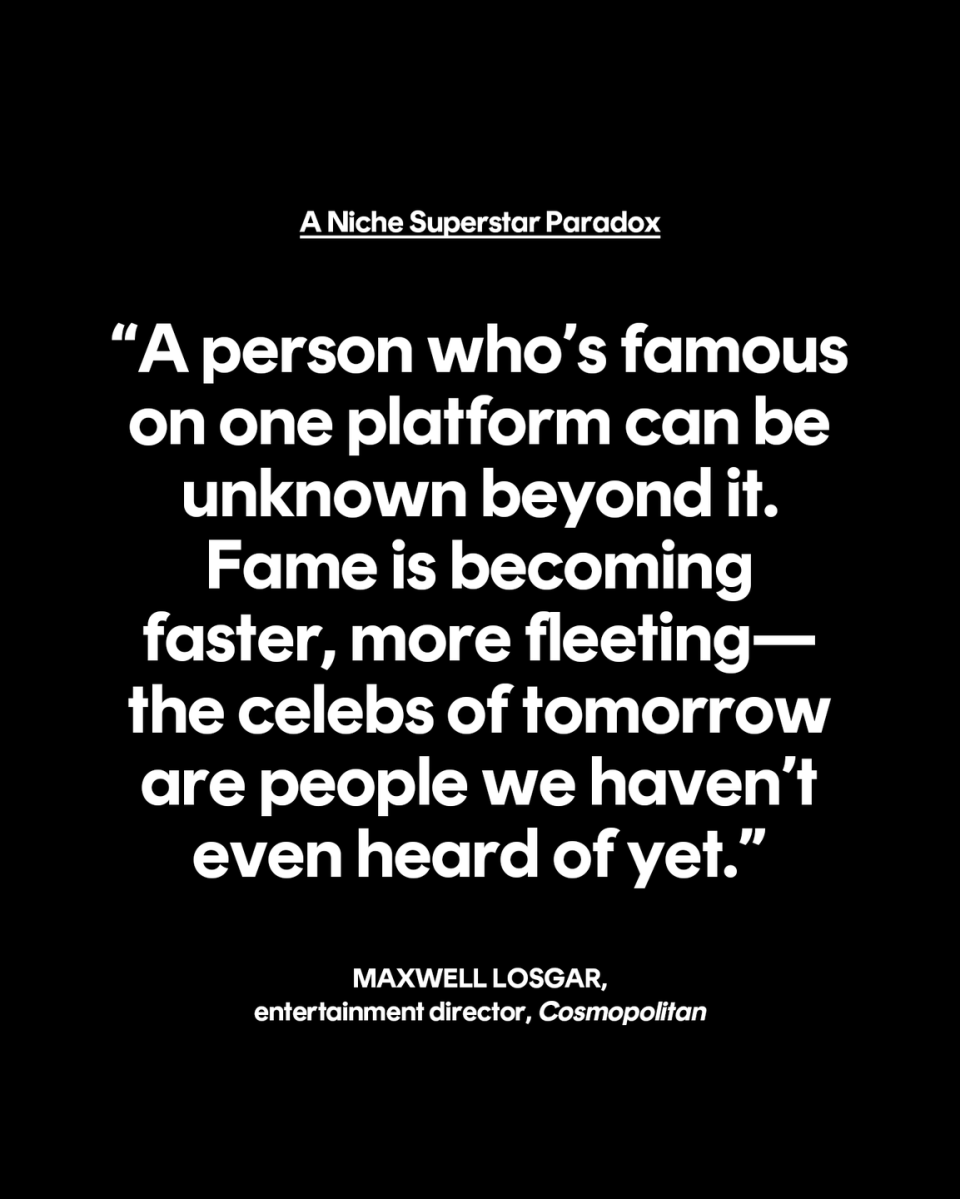
Fame as a Team Sport
“Today’s internet is evolving into a form called Web3, which means we’re going from a centralized social web to a decentralized spatial environment where people can interact in new ways. The metaverse is part of that ecosystem. It’s where all the blockchain-enabled tools, from cryptocurrency and wallets to NFTs and digital goods, come together. This gives rise to storyworlds that drive community participation. In the next five years, we could see celebrities and fans unified in the creation process. For example, fans of a TV series could purchase a ‘development NFT,’ giving them the ability to interact in the writers’ room to help produce shows and earn from the content they help develop. Web3 will lead to direct engagement between celebrities and fans in ways we’ve never seen before.” —Falon Fatemi, cofounder and CEO, Fireside
Reported by Christen A. Johnson, Patrice Peck, Erin Quinlan, and Caitlin Youngquist
Quotes have been edited for length and clarity.
You Might Also Like

